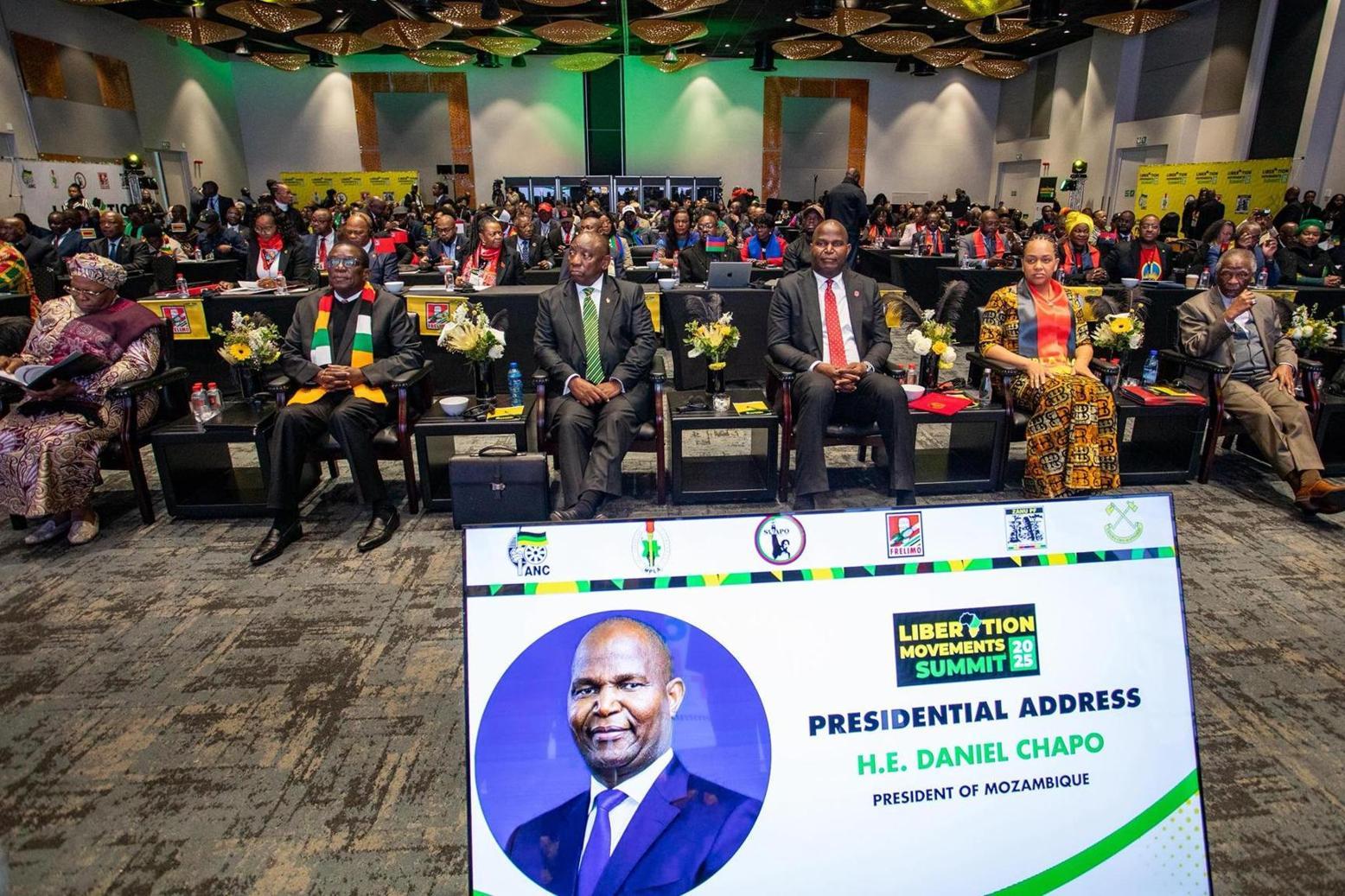Africa-Press – Mozambique. Mozambican analysts consider President Chapo’s assertion that post-election demonstrations were driven by the far-right “controversial and forced”, arguing that it is “a distraction” from the country’s real problems.
“A person who protests because they are unemployed, hungry, homeless, or lacking basic living conditions… Calling that person far-right is, to say the least, controversial,” political analyst Fernando Lima said to Lusa.
The president of the Mozambique Liberation Front (Frelimo) and Mozambican head of state, Daniel Chapo, called on July 27 for a union of the “liberation parties” of Southern Africa against the far-right, which he says wants to bring “puppet governments” to power.
For political analyst Fernando Lima, the far-right is the new argument Mozambican politics has found to justify citizens’ protests demanding better living conditions.
“Now, the terminology “far-right” is new to the political lexicon. And it’s very controversial. Why is it far-right? Are the Yellow Vests in France far-right? Are social protest movements in the streets far-right? I don’t think so. There are movements of all political stripes,” Lima explained.
“For example, in Germany, there are environmental groups that are very active and very violent in the streets, championing their causes and their flags. Therefore, the issue here is that there has never been a tradition of even speaking in terms of left and right, which is a very common language in European political terminology, especially,” he added.
In this regard, Lima, who is also a journalist, argued that what is at stake in the president’s statements is an “almost opportunistic attempt to link the demonstrations to certain political movement associations”, effectively linking former presidential candidate Venâncio Mondlane, who led the protests, with André Ventura’s Portuguese Chega party.
“And, therefore, to attribute these connections, particularly with the Portuguese Chega and with movements in Brazil, saying that they are far-right movements, therefore, Venâncio Mondlane is also far-right. So, President Samora Machel [Mozambique’s first president] was known to have a good relationship with Ronald Reagan [US President], a hyper conservative, and Margaret Thatcher [British Prime Minister], another hyper conservative British woman. Was President Samora Machel far-right?” Lima asked.
For his part, Sérgio Chichava, a political science professor at Eduardo Mondlane University, said this is a “forced” narrative meant to distract the public.
“It’s a distraction from the problems the country faces, because the country is in crisis on all fronts. The situation in the North [terrorism], the economy is also not moving. The country, after that turbulent electoral process, has not yet fully recovered,” Chichava said.
“So we have a president seeking legitimacy that he doesn’t have. He’s always finding scapegoats to justify his failures or his lack of legitimacy. We already know that no one believes that,” he added.
Chichava added that most liberation parties in Africa and their leaders “are on a downward trend,” and that they remain in power by resorting to “vote theft.”
“More than trying to find the tattered institutions, I think that these liberating parties (…) should focus more on solving the problems that make them unpopular (…), they should worry about that,” Chicava recommends.
For More News And Analysis About Mozambique Follow Africa-Press






